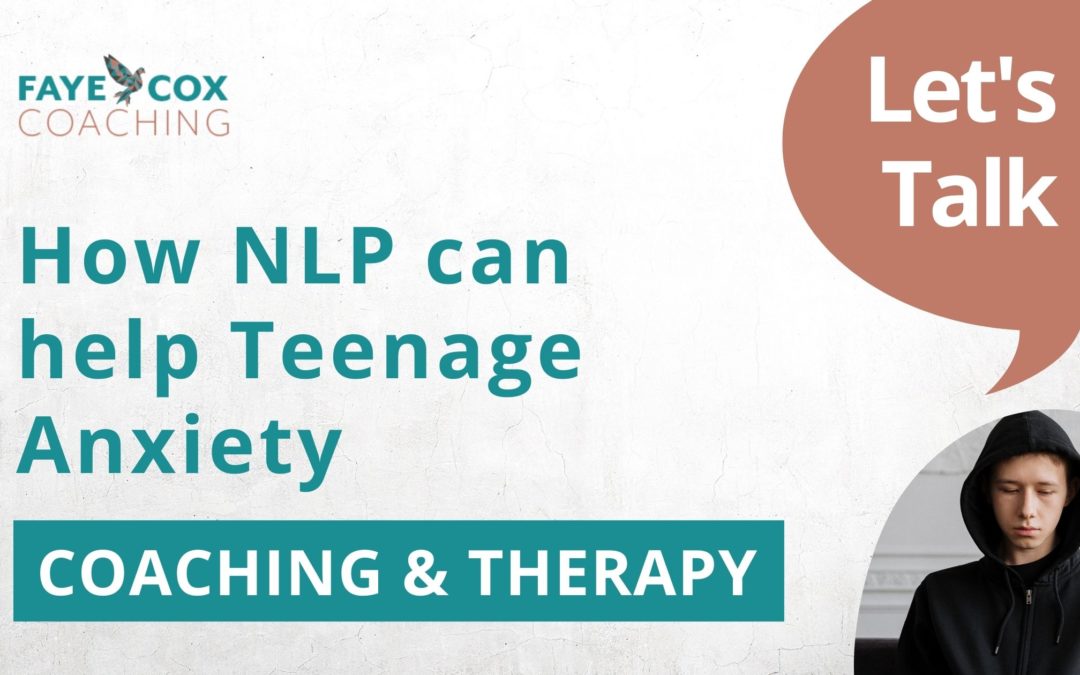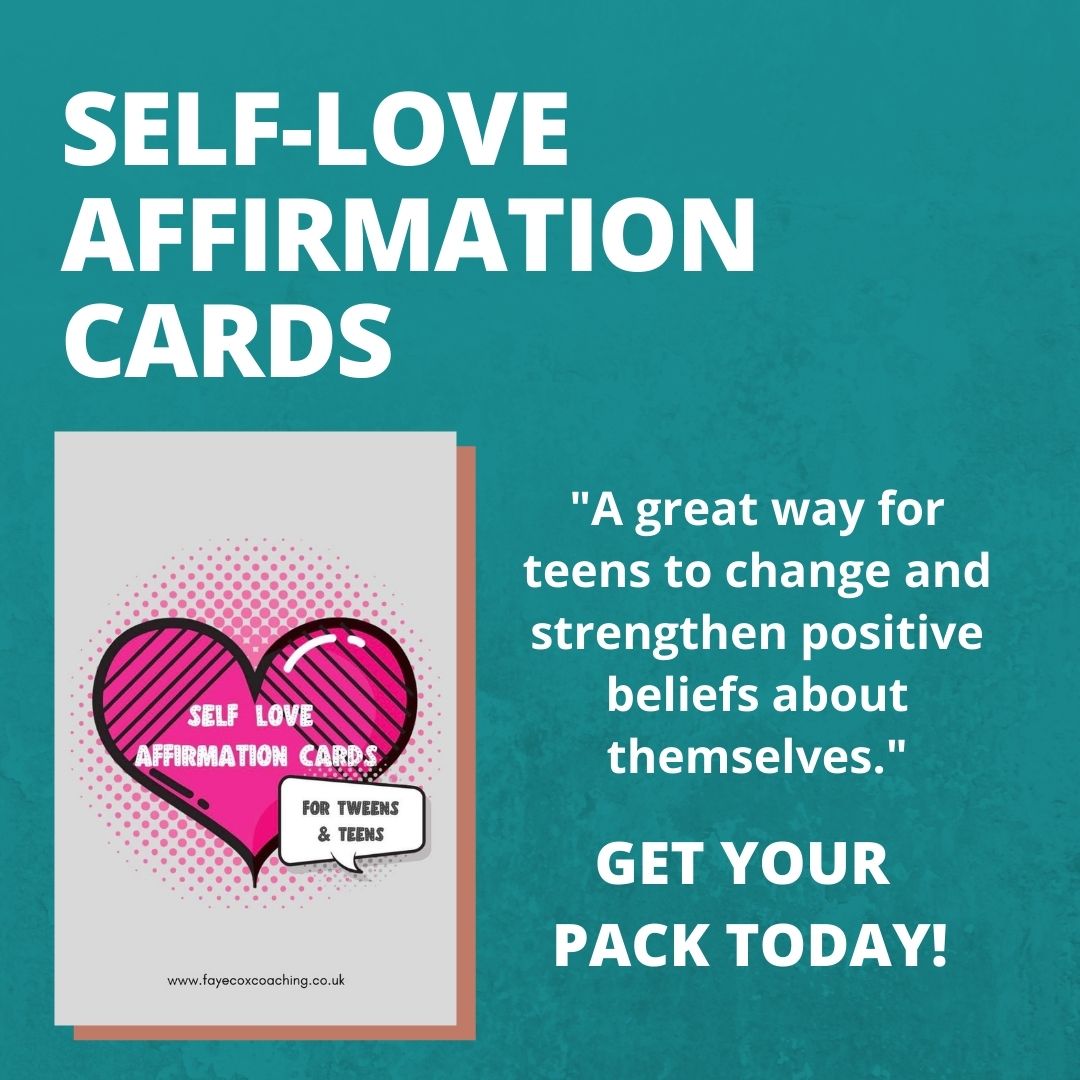
How NLP can help Teenage Anxiety
How NLP can help Teenage Anxiety
NLP can help Teenage Anxiety: NLP helps teenagers experiencing anxiety to gain change old thought and belief patterns and create new ones.
NLP helps teenagers experiencing anxiety to gain access to the unconscious mind, change old thought and belief patterns and create new ones. Ones that will support us to thrive in all aspects of life.
What is NLP
Firstly you may be wondering what NLP is and until I started my own research into Young People’s behaviour I was wondering the same thing.
NLP stands for Neuro Linguistic Programming and is the study of human thought processes. The language that we use to communicate our ideas and emotions as well as the behaviours we present based on our individual programming and unconscious mind.
NLP helps teenagers experiencing anxiety to gain access to the unconscious mind, change old thought and belief patterns and create new ones. Ones that will support us to thrive in all aspects of life.
Why is NLP Important?
Our entire life depends on the way we think and act and we do this in relation to our unconscious mind which is filled with thoughts and beliefs from the very moment we are born.
Not only does this affect us, but we also pass this programming down to our children in the way that we communicate and interact with them.
NLP will help you and your teenager to become aware of those thought patterns, recognise the behaviours that present as a result and will allow you to create new thoughts and behaviours as a result.
Watch my YouTube video for Five Quick Tips to Change your Thoughts.
What causes teenage anxiety?
Our teenagers can develop anxiety for many different reasons, such as:
- Exam stress
- Feelings that they are failing at school
- Being bullied at school or online
- Changing schools
- Moving home
- Lack of movement such as exercise
- Feelings of isolation
- Failing tests or exams
- Conflict between parents
- Feelings of not being good enough – the need to be perfect
- Injury
- Illness
- Feeling unloved
- Abuse
- Death of a loved one
- Sibling rivalry
- Lack of confidence
- Constant worrying about the future
- Conflict within friendships
- Comparing themselves to their peers
- Feeling big and new emotions
- Feelings of detachment from family and friends
As you can see there are a lot of things that can trigger anxiety in our teenagers and as a result, as parents we need to be looking out for the signs that our teen may be experiencing teenage anxiety.
As we learn these signs we are better equipped to support our teenagers when things get tough.
As time goes by you will be able to pick up on their anxieties a lot quicker and be ready to help and in turn they will recognise the signs sooner themselves and will be more comfortable asking for your help.
How to spot the signs of teen anxiety
To help, here are some of the signs that your teenager may be experiencing anxiety
- Constantly worrying about things that haven’t happened yet or that may happen.
- A rapid heart rate
- Breathlessness or shallow breathing
- Hot flushes or even feeling unusually cold
- Sweating
- Shaking
- Feelings of dizziness
- Lack of motivation
- Clinginess to either or both parents or caregivers
- Regular nightmares
- Feelings of irritability and mood swings
- Lack of self-esteem and confidence
- Trouble sleeping
- Unable to relax
- Reduced interest in school or other activities they usually love
- Lack of focus
- A dip in cognitive abilities(unable to think clearly or be able to do simple tasks)
- Compulsive behaviours which appear when their anxiety presents itself
NB: These symptoms can also run alongside a medical condition so it’s always best to get any medical conditions ruled out by a GP.
Create a safe space for your teen
When your teenager is experiencing anxiety it can be tough on all the family and the key to being able to support them is by understanding where it comes from and open up communication with them so that they feel safe.
Our number 1 need as a human being is to feel safe in any given moment. So when they are experiencing anxiety, ask yourself ‘Do they feel safe?’ if not, create a safe space for them so they can de-escalate.
A teenager who is escalated through a big emotion is not going to be in a place to talk about their feelings until they feel safe and ready.
Don’t take it personally if they aren’t ready at that moment to share. Creating that safe space will mean more than you realise.
Whilst creating that space where your teenager knows you are ready to allow them to be seen and heard. It’s always a good idea to refrain from using words like:
- You should
- You have to
- You must
- Just relax
- You’re just thinking negatively
- You’re just overthinking things as always
- It’s all in your head
- You worry too much
NLP techniques for Teenage Anxiety
Try some of the following NLP techniques. Not all techniques work for everyone, so I always suggest a few.
Affirmations
A great way to use NLP is in practicing Affirmations. Affirmations are a powerful tool to use with young people.
They can help to support them in rewiring their negative thoughts about themselves or a situation, and relieve their anxiety around them.
I use these when I’m working with young people, and I see some fantastic results. I have even created my own deck of cards inspired by the common issues that I see every week. See my online shop
These affirmations influence the unconscious mind in a positive way. I always recommend that you choose ones that are most relevant to what is going on for your teenager at that time.
Put these affirmations somewhere they will see them each and every day, on their mirror, in their lunch bag, as an alert on their phone. There are lots of ways you can use these positive unconscious statements.
For example: we can reframe their negative thinking about an exam, by switching sentences such as ‘I am going to fail’ into ‘I am going to give it my best shot’ or ‘I always do my best and today that is what I’m going to do’.
As parents we can support them by watching our own language. Both with our teenagers but also with ourselves.
Remember they look to you for guidance, so if you’re speaking negatively to yourself then you are showing them to do the same and then reframing will become harder.
How are you currently speaking to yourself and how can you change so that you are modelling the behaviour you want to see from your teenager.
The ‘As If’ technique
This is a good NLP technique for supporting your teenager as it uses their imagination and even in those teen years their imagination is still strong and we can tap into that.
If you find that your teen is unable to calm themselves down, firstly take them through a couple of breathing exercises (more on that in my next technique).
Once they are feeling calmer and ready to accept suggestions, ask them what it would be like if they were able to do, feel or have what they needed? How would they feel once they are able to move past the fear and achieve the desired outcome?
Ask them to tap into their sense of feeling, seeing, hearing, smelling and even tasting. This will support them to alter their emotional state and ease those feelings of anxiety.
It allows them to imagine how things could be if they allowed themselves to see the situation in a more positive way.
Breathing
Now this one is the simplest of all techniques, but it’s so underestimated especially by our young people.
If we can teach our teenagers the power of their breathe in any given moment and how it allows them to bring themselves back from the anxiety that is driving them to the present moment where there is nothing to fear.
One of the simplest breathing techniques is the 4, 4, 4, 4 box breathing which I use regularly. It’s as simple as slowing down the breathe and counting to 4 as you breath in, hold your breathe for the count of 4, then breath out for the count of 4 and hold for the count of 4.
Quite simply repeat until you are back in the present moment and your heart stops racing and you can regulate yourself. This can take some time and that’s OK.
This is always my go to and one that my own kids use when they feel any kind of fear or anxiety. We breathe together for as long as it takes.
This helps you to create that safe space that I was talking about earlier.
Breathing with them in this way creates connection and within that place of connection your teenager will feel safer and more ready to talk about what their worry feels like.
Grab your Free Anxiety Resources
I hope you have found this article useful in understanding how NLP can help teenage anxiety. And that you feel able to implement some of these techniques with your teenager and even yourself.
There are many other NLP techniques that can be used when dealing with teenage anxiety and you can find out more of these by grabbing your FREE Anxiety resources.
Visit my Online Shop
Order a copy of my Teen Anxiety Journal and Self Love Affirmation Cards especially designed for tweens and teens.

Get in touch
If you have any further questions please call: 07968381793 or email faye@fayecoxcoaching.co.uk
